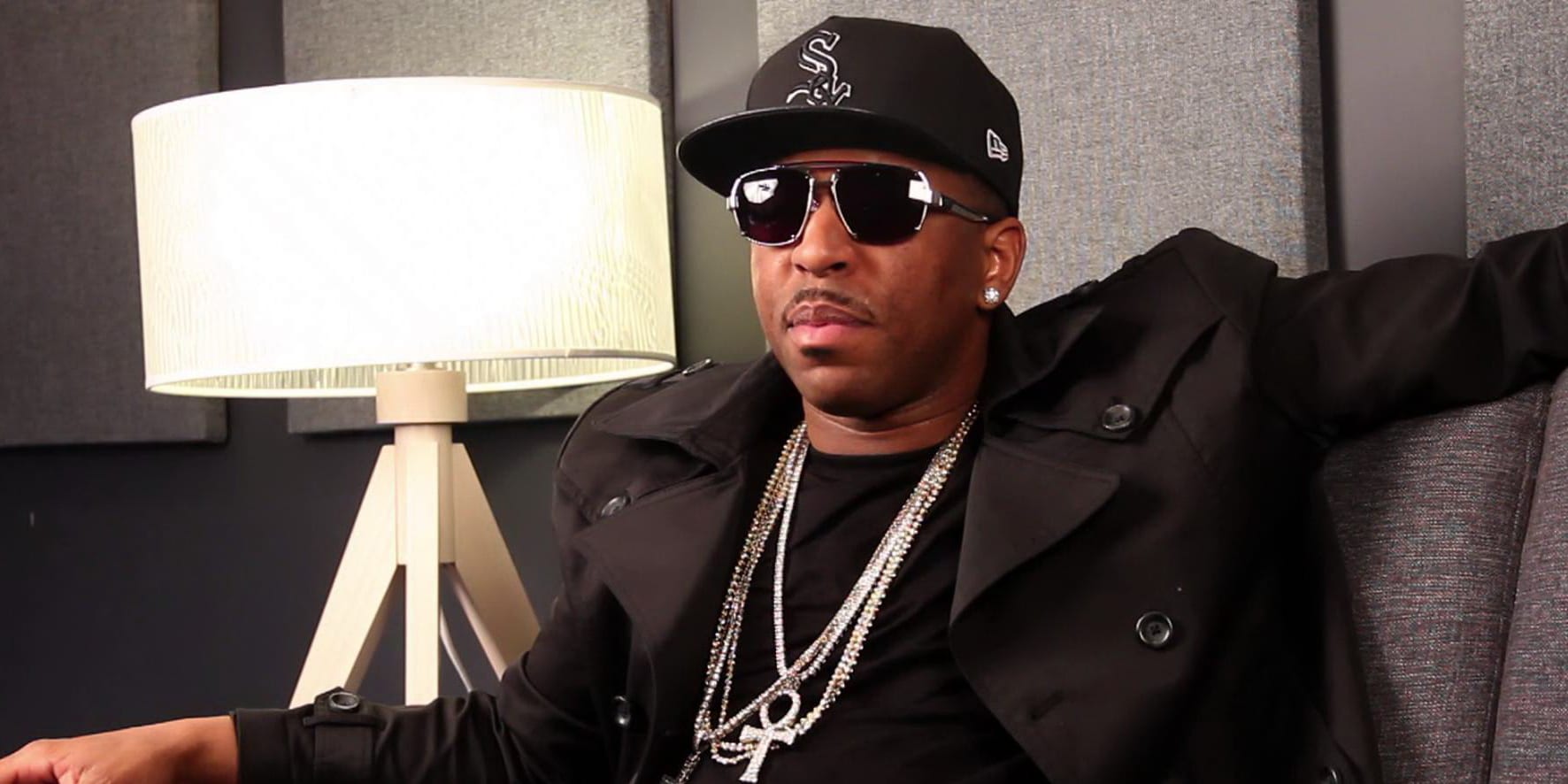Exploring Rocko's Financial Standing: What's His Net Worth?
Many folks are curious about the financial standing of popular figures, and when it comes to music artists, the questions often turn to their earnings. People really want to get a sense of how much money someone like Rocko, a well-known name in the music world, has managed to gather over his career. It’s a natural thing to wonder about, especially when you see how much impact these artists have on culture and entertainment.
Figuring out someone's actual financial worth can be a bit like trying to solve a puzzle, you know, with pieces scattered all over the place. For music artists, their money comes from so many different spots, and a lot of that information isn't out there for everyone to see. So, when we talk about Rocko's net worth, we're often looking at estimates based on what we know about his work, his business deals, and the general way the music industry operates, which is a bit of a tricky thing to pin down precisely.
This article aims to shed some light on the various ways artists like Rocko build their wealth, from the songs they create to the businesses they run. We will, in a way, go over the different parts that make up an artist's financial picture, giving you a better idea of how someone in his position might accumulate assets. It's really about looking at the big picture of how money flows in the music business and where Rocko fits into that scene, so to speak.
Table of Contents
- Rocko: A Brief Look at His Journey
- Personal Details and Career Highlights
- The Start of a Musical Path
- How Artists Make Money: Record Deals and Advances
- The Power of Publishing and Songwriting
- Live Shows and Touring Income
- The Streaming Revolution and Its Impact
- Beyond Music: Entrepreneurial Ventures
- Brand Partnerships and Endorsements
- Challenges and Financial Fluctuations
- Estimating the Worth: A Complex Task
- Frequently Asked Questions About Rocko's Finances
Rocko: A Brief Look at His Journey
Rocko, whose actual name is Rodney Ramone Hill, Jr., has been a notable presence in the music scene for quite some time. He made his mark as a rapper and also as a record label boss, which is a pretty big deal. His career really shows how someone can make a name for themselves in the competitive world of music, you know, by being both a creative force and a smart business person.
His story, in a way, reflects the path many artists take, starting from humble beginnings and working their way up. It’s a testament to persistence and talent, really. Rocko has, you know, put out a good bit of music that resonated with many listeners, helping him build a loyal following over the years.
Personal Details and Career Highlights
Here’s a quick glance at some key facts about Rocko, giving you a bit more background on the person behind the music. This table provides some basic details and also highlights a few important points from his professional life, just so you have a better idea.
| Detail | Information |
|---|---|
| Full Name | Rodney Ramone Hill, Jr. |
| Known As | Rocko |
| Occupation | Rapper, Record Label Executive |
| Birthplace | Atlanta, Georgia, USA |
| Active Years | Early 2000s – Present |
| Notable Label | A1 Recordings (later A1 Entertainment) |
| Key Albums | "Self Made" (2007), "Gift of Gab" (2008) |
| Well-known Singles | "Umma Do Me" |
The Start of a Musical Path
Every artist has a starting point, and for Rocko, his journey into the music world began, you know, with a passion for creating sounds. He started putting out mixtapes and independent projects, which is a very common way for new artists to get noticed. These early efforts are really important because they help an artist build a fan base and, in a way, show off their unique style to the world.
Getting recognition in the music business is, apparently, a marathon, not a sprint. Rocko’s early work laid the groundwork for his later successes, attracting attention from bigger players in the industry. It's a bit like how a small local pizza place, you know, might start with a great recipe and then grow to become a favorite, serving many more people because of that initial quality.
How Artists Make Money: Record Deals and Advances
A big part of an artist's financial picture often comes from record deals. When an artist signs with a record company, they typically get an advance, which is money paid upfront. This money helps them cover recording costs, living expenses, and other things while they work on their music, which is pretty helpful, you know.
However, that advance isn't just a gift; it's usually recoupable. This means the record company gets their money back from the artist's future earnings, like from album sales or streaming royalties, before the artist sees any more money. It’s a system that, in a way, balances risk for both sides, but it can take a good while for an artist to actually earn past that initial advance, so it's a bit of a waiting game.
The percentage of royalties an artist gets from sales varies greatly, too. It can be anywhere from, say, 10% to 20% or even more for very established artists. These percentages are, you know, a huge factor in how much an artist ultimately takes home from their recorded music, making every bit of that negotiation really important for their long-term financial health.
The Power of Publishing and Songwriting
Beyond the money from record sales, a very significant income stream for artists comes from publishing. This is all about the songs themselves – the lyrics, the melodies, the compositions. Whenever a song is played on the radio, streamed online, used in a movie, or covered by another artist, the songwriter and publisher earn royalties, which can be quite substantial, actually.
Rocko, as an artist who writes his own material, and also as someone who has likely had his songs used in various ways, benefits from these publishing rights. It’s a bit like owning a recipe for a world-famous chicken dish; every time someone makes it or sells it, you get a piece of the action. These royalties are, in a way, a long-term income source that can keep flowing for many years, even after the initial buzz of a song fades, which is pretty neat.
There are different types of publishing royalties, too. Mechanical royalties are paid when a song is reproduced, like on a CD or through a stream. Performance royalties come from public broadcasts or performances. Sync royalties are paid when a song is used in visual media, such as films or TV shows. These different streams, you know, really add up over time and contribute a lot to an artist’s overall financial picture.
Live Shows and Touring Income
For many music artists, live performances and touring are, in a way, the biggest earners. Playing concerts, doing club appearances, and going on tour can bring in a lot of money, especially for popular acts. The bigger the artist, the more they can charge for tickets, and the more shows they can play, so that's a pretty clear connection.
Think about how much effort goes into coordinating a team for a smooth service, like a shift manager at a popular eatery. Similarly, putting together a tour involves a whole crew, from musicians to sound engineers and road managers. Each show, you know, involves ticket sales, merchandise sales, and often appearance fees, all of which contribute to the artist's income. It’s a very hands-on way of earning, really.
Merchandise sales at these events, too, can be a significant boost to an artist's income. T-shirts, hats, and other branded items are often sold at concerts, and the profit margins on these can be quite good. So, while you're enjoying the music, you're also, in a way, helping to support the artist directly through these purchases, which is kind of cool.
The Streaming Revolution and Its Impact
The rise of music streaming platforms has changed the game for artists' earnings, in a way, quite dramatically. While streaming has made music more accessible than ever, the per-stream royalty rates are often very, very small. This means an artist needs billions of streams to earn what they might have made from a few million album sales in the past, which is a bit of a challenge.
For an artist like Rocko, whose career spans both the era of physical album sales and the current streaming dominance, this shift has undoubtedly affected his income streams. It means that, you know, the way money comes in has really changed, and artists have to adapt their strategies to make a living in this new environment. It’s a constant adjustment, really, to keep up with how people consume music today.
Despite the low per-stream rates, the sheer volume of streams can still add up over time, especially for songs that become evergreen hits. A song that continues to get played years after its release can, in a way, provide a steady trickle of income. This is where the long-term value of a strong music catalog really comes into play, a bit like how a classic film, remastered for a new experience, can still draw big crowds years later, generating new interest and, you know, new revenue.
Beyond Music: Entrepreneurial Ventures
Many successful artists don't just stick to making music; they branch out into other business ventures. Rocko, for example, is well-known for his record label, A1 Entertainment. Running a label means he's not just an artist but also a business owner, which adds a whole other layer to his potential earnings and financial standing, you know.
A record label can sign other artists, produce their music, and handle their distribution, earning a share of their success. This diversifies an artist's income beyond their own creative output. It’s a bit like expanding from just making pizzas to also selling pasta and wings; you're, in a way, creating more avenues for money to come in, which is smart business.
These entrepreneurial efforts can, apparently, be very rewarding, but they also come with their own set of challenges and risks. Investing in new talent, managing a team, and navigating the ups and downs of the music industry all require a good bit of business savvy. So, while they offer a chance for more money, they also demand a lot of hard work and, you know, careful decision-making.
Brand Partnerships and Endorsements
Another significant way artists boost their financial standing is through brand partnerships and endorsement deals. Companies pay popular artists to promote their products or services, leveraging the artist's influence and reach. This can involve anything from social media posts to starring in commercials or even creating their own branded lines of products, which is pretty common these days.
For an artist like Rocko, who has a recognizable name and a loyal fan base, these deals can be very lucrative. They provide a direct stream of income that isn't tied to music sales or streams, which is a good way to diversify earnings. It’s a bit like a well-known personality endorsing a favorite place to order food; their influence, you know, helps bring in customers and they get compensated for that reach.
The value of these partnerships depends on the artist's popularity, their audience demographics, and the specific brand they're working with. A big name can command a much higher fee, naturally. These types of agreements are, in a way, a clear sign of an artist's marketability beyond their music, showing that their image itself holds significant value.
Challenges and Financial Fluctuations
The music industry is, in some respects, known for its ups and downs, and an artist's net worth can fluctuate quite a bit over time. Income from music sales can decline, touring schedules can change, and business ventures might not always pan out as expected. It’s a very dynamic environment, really, where things are always moving and changing.
Legal battles or disputes, too, can sometimes impact an artist's finances. Contract disagreements, copyright issues, or other legal challenges can lead to significant expenses or even loss of income. These situations are, you know, often complex and can take a good bit of time and money to resolve, which can definitely affect an artist's financial health in the short term.
Maintaining relevance in the ever-changing music landscape is also a constant challenge. Artists need to keep creating new music, engaging with their fans, and adapting to new trends to stay in the public eye. This continuous effort is, in a way, vital for keeping their income streams flowing and ensuring their long-term financial stability, so it's a lot of work.
Estimating the Worth: A Complex Task
When it comes to putting an exact number on someone's net worth, especially a public figure like Rocko, it’s often more of an educated guess than a precise calculation. Most of the time, the real figures are private, and publicly available information only gives us a partial picture. We can, you know, look at known deals, album sales, and general industry averages, but it’s never the full story.
Financial reports for private individuals or companies are not usually shared with the public, so any figures you see are typically estimates from financial publications or entertainment news outlets. These estimates consider things like album sales, streaming numbers, touring revenue, and known business ventures, but they don't have access to personal bank accounts or private investments, which is kind of obvious.
So, while we can talk about the various components that contribute to Rocko's net worth, providing an exact, verified figure is, honestly, not really possible for anyone outside his personal financial team. It’s important to remember that these numbers are, more or less, approximations based on publicly available data and industry insights, not confirmed totals, which is something to keep in mind.
Frequently Asked Questions About Rocko's Finances
People often have specific questions when it comes to an artist's financial standing. Here are some common inquiries that come up about Rocko's earnings and career, giving you a bit more clarity on what folks are curious about, you know.
What are the main sources of Rocko's income?
Rocko's income comes from several places, typically including royalties from his music sales and streams, earnings from live performances and tours, and profits from his record label, A1 Entertainment. He also likely earns money from various business ventures and brand partnerships, which is pretty standard for artists of his standing. These different avenues, in a way, all contribute to his overall financial picture, so it's not just one thing.
How does a record label contribute to an artist's net worth?
Running a record label, like Rocko does with A1 Entertainment, can significantly boost an artist's net worth by creating new income streams beyond their own music. The label earns money from signing other artists, producing and distributing their music, and taking a share of their sales and royalties. This means, you know, the artist becomes a business owner, generating profit from the success of others as well as their own work, which is a pretty smart move.
Is Rocko still active in the music industry?
Yes, Rocko has, you know, remained active in the music industry, both as an artist and through his A1 Entertainment label. He continues to release new music and work with other artists, keeping his presence known in the ever-changing landscape of the music world. This ongoing involvement is, in a way, key to maintaining his financial standing and relevance in the industry, so he's still very much a part of things.
To learn more about music industry finances on our site, and for more specific details, you might want to link to this page about artist earnings.

Rocko Net Worth - Net Worth Post

Rocko Net Worth in 2023 - Wiki, Age, Weight and Height, Relationships

Rocko Net Worth in 2023 - Wiki, Age, Weight and Height, Relationships